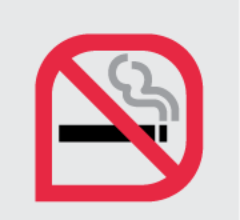Here’s one cheer for the “Million Hearts” initiative launched yesterday by Thomas Frieden, head of the Centers for Disease Control and Prevention, and Donald Berwick, chief of the Centers for Medicare and Medicaid Services. By establishing a goal of reducing heart attacks and strokes by 10 percent a year over the next five years, they’ve set a measurable objective that, if achieved, will save lives.
But will their program work? The program has two components: clinical prevention measures and public health measures.
Here’s one cheer for the “Million Hearts” initiative launched yesterday by Thomas Frieden, head of the Centers for Disease Control and Prevention, and Donald Berwick, chief of the Centers for Medicare and Medicaid Services. By establishing a goal of reducing heart attacks and strokes by 10 percent a year over the next five years, they’ve set a measurable objective that, if achieved, will save lives.
But will their program work? The program has two components: clinical prevention measures and public health measures.
The clinical measures include aggressive use of electronic medical records to find and treat people at high risk of heart disease. The interventions include a daily aspirin for people who already have heart disease (less than half of such people now take a daily aspirin, whose anti-platelet effects help prevent the clots that lead to hearts attacks and strokes); blood pressure control and cholesterol-lowering meds for more people at risk of heart disease because these biomarker levels are elevated (less than half and a third of people at high risk, respectively, have those biomarkers under control); and more aggressive and targeted anti-smoking campaigns for the 20 percent of adult Americans who still smoke.
On the public health side, the two officials said the government will beef up its anti-smoking campaign; promote policies like menu labeling in chain restaurants so people can reduce caloric intake and sodium consumption (salt raises blood pressure); and promote policies aimed at eliminating trans fats in food, which raises artery-clogging cholesterol. Frieden and Berwick also gave a shout-out to the First Lady’s “Let’s Move” campaign, and call for expansion of the Diabetes Prevention Program, an intensive lifestyle counseling program that is being promoted nationally by the YMCA.
There was a 50 percent reduction in U.S. mortality from heart attacks between 1980 and 2000. Still each year there are 2 million such events, and 800,000 people die from heart disease, their joint article in today’s New England Journal of Medicine said. The program is aimed at reducing that by 1 million attacks and strokes over the next five years.
Here’s what’s missing from the program: any discussion about the social determinants of heart disease. The major news story of the day (other than the endless political conflict in Washington over which budget to slash fastest so more people can lose jobs and benefits) is the rapid growth of poverty and and inequality in the U.S. over the last decade. Official and unofficial unemployment (at least 16%) has reduce the American population to income levels of 1997, and raised poverty levels to the highest they’ve been since 1993.
One of the root yet silent causes of heart disease is economic stress. Bad food is cheap food. Even the urge to smoke is stress-related for people who want to quit. The latest census numbers on poverty don’t address inequality, but scientists have known since a famous study among British civil servants that insecurity and lack of status piled on top of low incomes are a major cause of heart disease and premature mortality.
It’s not the role of public health agencies like CDC and CMS to end unemployment, poverty and inequality in America. But any public health campaign to reduce heart disease that is worth its salt should start with public recognition of its one of its primary economic causes, and call for a reduction in those risk factors. Unless we reduce the rising levels of economic stress in the U.S., and around the world, all health care system and public health program interventions against heart disease will be of no more consequence than sand castles against the waves.







